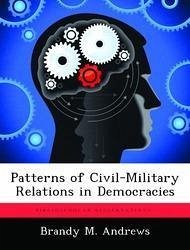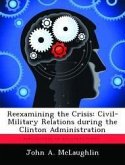Civil-Military relations are an area of study that garners intense scrutiny. Since Samuel Huntington and Morris Janowitz first introduced their theories on civil-military relations, many scholars have debated the issue. Over the years, many alternative theories have been explored. A study of civil-military relations has been conducted on almost every nation in the world, some more than once. Of all the research available on civil-military relations, there still exists a shortfall in criteria that can be used to assist developing democracies in determining the evolution of their own civil-military relations. As nations continue to evolve, so too will their civil-military relations. This monograph attempts to bridge the shortfall in areas of civil-military relations that will help a developing nation in improving its own civil-military relations. It will also be helpful to those organizations that may find themselves in a position to assist democracies in developing their civil-military relations. In the study, four criteria are identified that apply to civil-military relations in democracies. These criteria have been applied to two case studies that show how the application of the criteria shows distinct patterns of development for civil-military relations. These criteria are the establishment of founding documents that specifically dictate civilian control over the military; the professional development of the military forces; the relationship of the civilian government and the military during times of war and peace; and the work-shirk attitude of the military. These criteria relate directly to different areas of civil-military relations where outside organizations may have the influence to provide guidance and advice to newly emerging democracies. Specifically this study may assist MNSTC-I and CSTC-A in the current fight, by helping both Iraq and Afghanistan develop a positive relationship between the government and the military.
Hinweis: Dieser Artikel kann nur an eine deutsche Lieferadresse ausgeliefert werden.
Hinweis: Dieser Artikel kann nur an eine deutsche Lieferadresse ausgeliefert werden.








